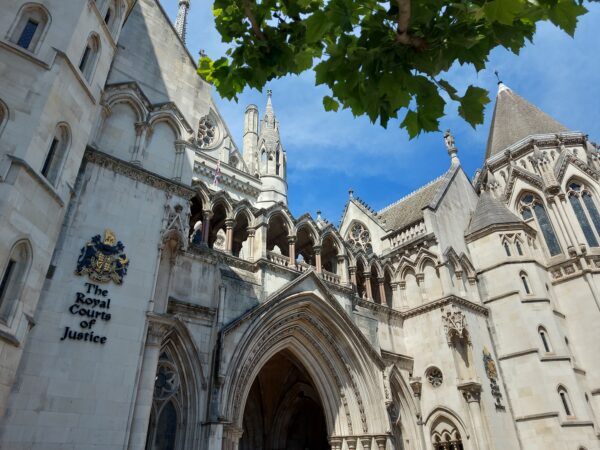Travel
Court of Appeal dismisses Iranian asylum appeal
An appeal against the refusal of an asylum claim made by an Iranian man who sought to rely on his attendance at protests in the UK and social media posts has been dismissed by the Court of Appeal. The case is S v Secretary of State for the Home Department [2024] EWCA Civ 1482.
Background
The appellant is an Iranian citizen of Kurdish ethnicity born on 1 August 1994. He entered the UK on 13 March 2020 and claimed asylum. Once in the UK, the appellant attended demonstrations outside the Iranian embassy and made political posts on social media.
On 10 March 2022, the appellant attended a substantial asylum interview and his claim was refused on 25 March 2022. The refusal letter said that
that the appellant’s political activities were limited to his attendance at a demonstration outside the Iranian Embassy on one occasion, as depicted in an image which he submitted which showed him standing alone at a significant distance away from the Embassy behind a hedge. Moreover, his Facebook account, which had been set up by a third-party on an unknown date, had ceased about 2 months or so prior to the interview, due to his phone being deactivated by his service operator. The appellant provided three images from the Facebook account, comprising a profile picture, a cover photo and a post by a third party. It was not clear as to whether the Facebook account was a public one and the appellant stated that he did not intend to create another one.
Appeals
The First-tier Tribunal dismissed the appeal on 21 October 2022. The judge referred to the country guidance case of HB (Kurds) Iran CG [2018] UKUT 430 (IAC) which said that Kurds involved in even “low-level” political activity, if discovered, are at real risk of persecution, however, found the appellant to lack credibility and so it was not accepted that he would come to the attention of the Iranian authorities.
Concerning his social media posts, XX (PJAK – sur place activities – Facebook) Iran CG [2022] UKUT 23 (IAC) was considered but the judge concluded that it was not reasonably likely that the appellant’s social media activities were the subject of targeted surveillance by the Iranian authorities. Other reasons risk from his social media posts were not accepted include that he had not been photographed with anyone prominent and neither of his accounts was in his name. The judge found that the appellant would be able to close his Facebook accounts before applying for an emergency travel document.
Permission to appeal was granted by the Upper Tribunal and on 13 September 2023 the tribunal set aside the decision of the First-tier Tribunal, having found a material error about the judge’s failure to assess the risk to the appellant arising from being interviewed by the Iranian authorities on return.
The Upper Tribunal remade the decision on 8 November 2023, dismissing the appeal. The judge found that there was nothing in the photographs of the appellant at the Iranian Embassy to “suggest that he was an active participant or that he was an interested and identifiable protestor, or that he was anything other than a face in the crowd”. On his social media activities, the judge found that the appellant “has no ‘social graph’ as in XX which would have led to attention being drawn to him and which could have made him the subject of targeted social media surveillance”.
The judge referred to BA, PS, HB, and SSH and HR (illegal exit: failed asylum seeker) Iran CG [2016] UKUT 308 (IAC) when considering the issue of risk to the appellant on arrival in Iran as a failed asylum seeker. The judge concluded that there was no reason for the Iranian authorities to be suspicious of the appellant and no reason for him to be detained for further questioning.
The appellant appealed to the Court of Appeal on two grounds. The first was that the judge erred by failing to consider material matters, including the number of demonstrations attended by the appellant and that caches of Facebook data may remain on search engines. The second ground was that the judge had failed to apply the facts to the country’s guidance on the return of a failed asylum seeker, including that the appellant was Kurdish and therefore at heightened risk of suspicion on return.
The Home Secretary’s position was that the appeal was no more than a disagreement with the finding and conclusions that the judge was entitled to make.
Both grounds of appeal were dismissed, the court holding that the findings were ones which the judge was entitled to make based on the evidence and that they had been determined by the relevant country guidance cases.
Conclusion
This case is a useful reminder that although Iranians are the third highest nationality of people claiming asylum in the UK, with a grant rate of 76%, these Iranian place cases are unlikely to be straightforward.
Related posts:
- Why the outcome of the Rwanda bill mattered for Sunak – and the Conservatives | Immigration and asylum
- Home Office asks for emergency £2.6bn after asylum seeker hotels overspend
- Court of Appeal held that time limit did not start to run where notice of decision failed to mention right of appeal
- Analyzing Canada’s Job Market: December 2023 Trends and Insights




















